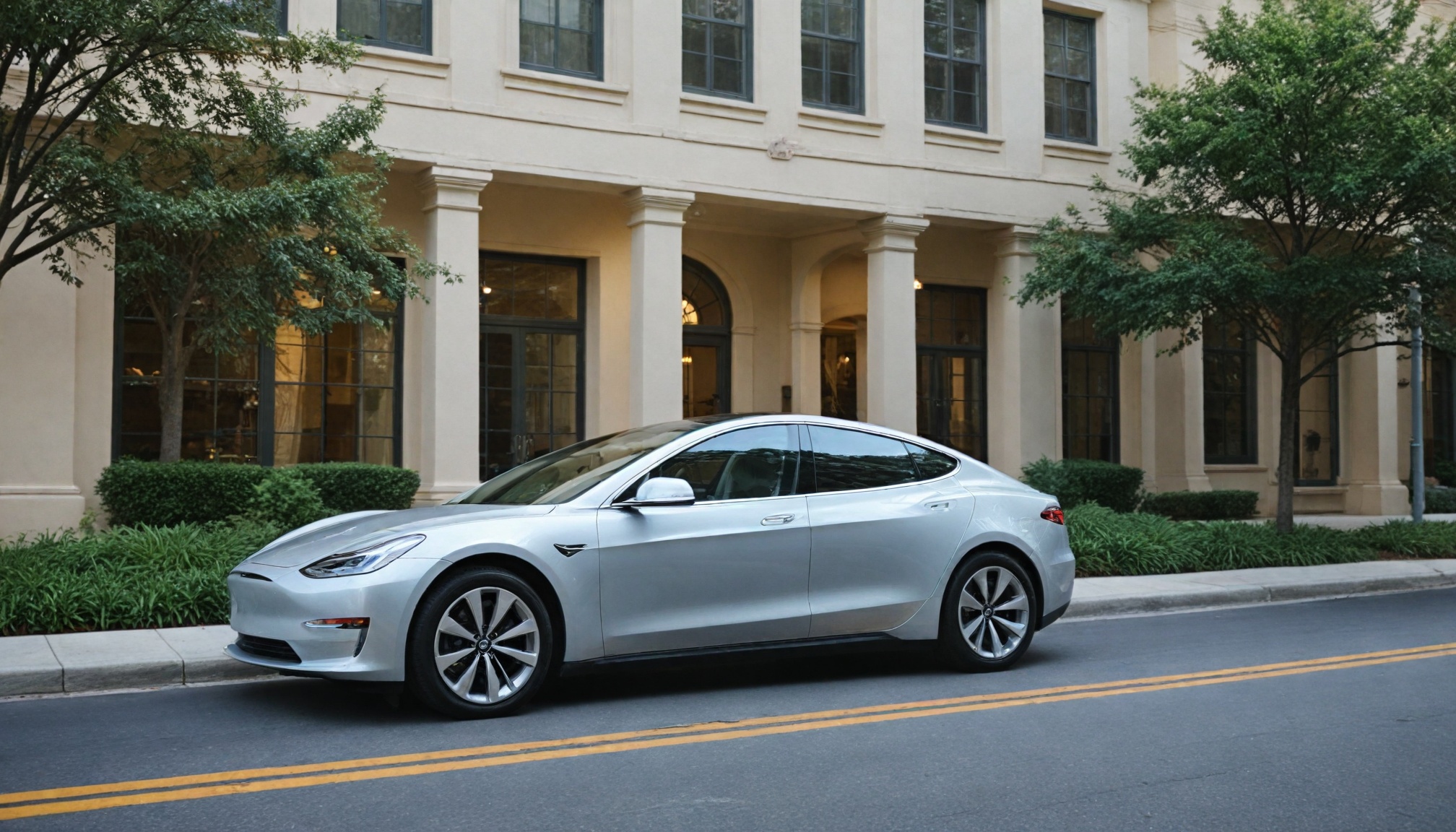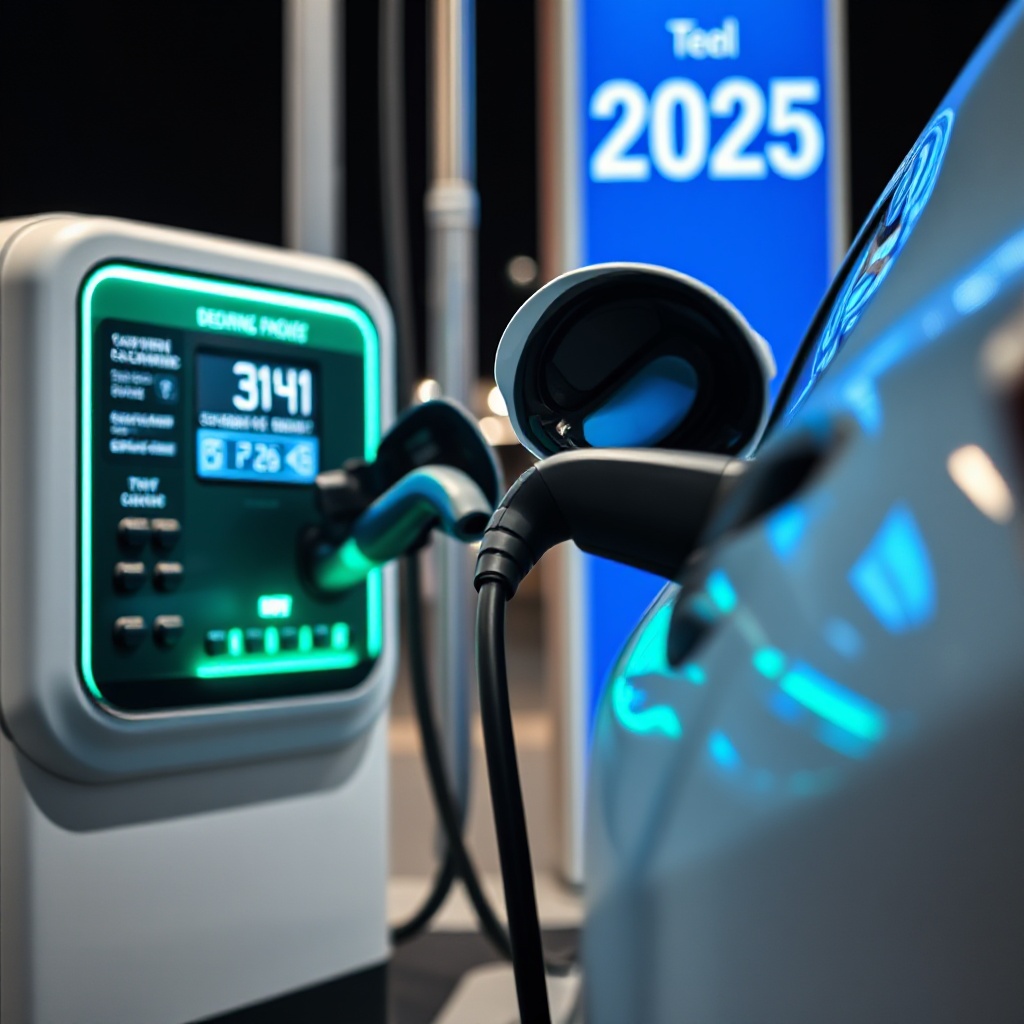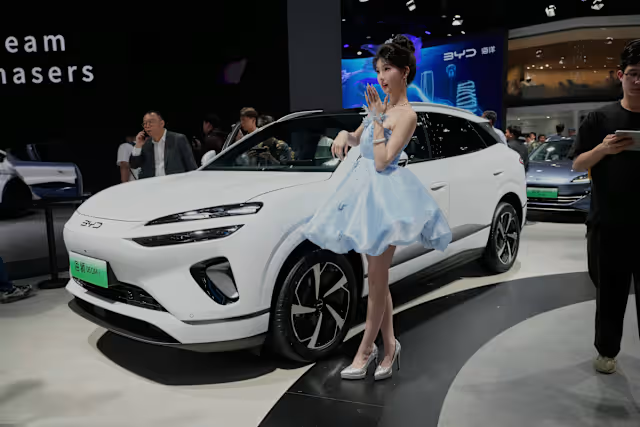
House GOP bill threatens to end $7,500 EV tax credits after 2025, creating urgency for consumers and potentially slowing adoption rates to 24% by 2030.

Drivetech Partners
The House GOP's budget reconciliation bill threatens to eliminate most electric vehicle tax incentives after 2025, creating a rapidly closing window for consumers considering an EV purchase. This significant policy shift would terminate the popular $7,500 credit for new electric vehicles, along with used EV credits and charging infrastructure incentives, potentially reshaping the clean energy landscape and slowing adoption rates across the country.
Key Takeaways
The "One Big Beautiful Bill Act" would end most EV tax credits after December 31, 2025
Credits being eliminated include the $7,500 new EV credit, $4,000 used EV credit, and charging station incentives
Manufacturers selling fewer than 200,000 EVs would retain limited credits through 2026
Princeton University projects EV market share would reach only 24% by 2030 without incentives versus 40% with them
The bill would also phase out broader clean energy tax credits starting in 2029
Current Clean Vehicle Tax Credits Facing Elimination
The House Republican budget reconciliation bill proposes a dramatic overhaul of federal clean vehicle incentives, with most tax credits terminating after December 31, 2025. This sweeping legislation would end several key programs that have helped drive EV adoption in recent years.
The credits facing elimination include:
The $7,500 maximum tax credit for new electric vehicles
The $4,000 (or 30% of sale price) credit for used EVs
The $1,000 tax credit for home charging station installation
Commercial clean vehicle credits for businesses
These incentives, expanded through the Inflation Reduction Act, have been critical factors in making electric vehicles more affordable for many Americans. Their potential elimination creates urgency for consumers considering an EV purchase in the next 18 months.

Limited Exemptions and New Fees for Electric Vehicles
While the bill would end most EV incentives, it does include a narrow exemption for certain manufacturers. Companies that have sold fewer than 200,000 electric vehicles would retain limited tax credits through 2026. However, major manufacturers like Tesla and General Motors, which have already exceeded this threshold, would see their customers lose access to these benefits entirely after 2025.
Adding to the financial impact, the legislation proposes new annual registration fees specifically targeting electric and hybrid vehicles:
$100 for hybrid vehicles
$250 for fully electric vehicles
These fees would create additional costs for EV owners, further altering the financial calculus for potential buyers considering the switch to electric.
Projected Impact on EV Market Growth and Adoption
The elimination of these tax credits could significantly slow the pace of electric vehicle adoption in the United States. According to a Princeton University study, EV sales would reach only 24% of the new car market by 2030 without these incentives, compared to 40% if the current credits remain in place.
This projected 16 percentage point difference represents millions of vehicles and could have far-reaching implications for:
Carbon emission reduction goals
Automotive industry investment decisions
Infrastructure development planning
Consumer vehicle choices
The slowdown would come at a critical time when many automakers are ramping up production of electric models and making significant investments in manufacturing capacity.
Broader Clean Energy Impacts Beyond Vehicles
The bill's impact extends well beyond just the automotive sector, targeting numerous clean energy tax credits that were expanded or created through the Inflation Reduction Act. Most technology-neutral clean energy tax credits for projects would terminate after 2028.
The legislation would also significantly weaken key clean electricity incentives:
Clean electricity investment tax credit (Section 48E)
Clean electricity production tax credit (Section 45Y)
Projects would need to "commence construction" within just 60 days of the bill's passage to qualify for certain credits, creating a near-impossible timeline for many developers. The remaining credits would begin phasing out on an accelerated schedule:
20% reduction in 2029
40% reduction in 2030
60% reduction in 2031
Complete elimination by 2032
Economic and Budgetary Considerations
Proponents of the bill point to its significant revenue-generating potential. According to projections, repealing energy and clean vehicle tax credits would generate approximately $786 billion in revenue over the 2025-2034 budget window.
The annual revenue impact would start at $26 billion in 2026 and grow dramatically to $140 billion by 2032. Supporters argue that EV credits have become more expensive than initially projected due to EPA tailpipe emissions regulations and various leasing loopholes that have expanded eligibility.
This revenue argument forms a central pillar of support for the legislation, with proponents suggesting these tax expenditures have grown beyond their original scope and cost estimates.
Legislative Status and Political Debate
The "One Big Beautiful Bill Act" narrowly passed the House on May 22, 2025, advancing now to the Senate, which is expected to take up the legislation in June 2025. Several Republican senators have already called for significant changes to the House version, raising questions about how the two chambers might reconcile potentially different approaches.
The political debate largely centers on fundamental questions about the government's role in energy markets:
Should the government subsidize specific vehicle technologies?
Is the market ready for EVs to compete without incentives?
What priority should be placed on carbon emission reduction?
How should transportation infrastructure be funded as gas tax revenue declines?
With reconciliation between the chambers remaining uncertain, the final outcome of the legislation could still change substantially before reaching the president's desk.
Environmental and Industry Stakeholder Perspectives
The bill has drawn sharp criticism from environmental groups and clean energy advocates. Critics describe it as "worse than feared" for clean energy industries, with the League of Conservation Voters warning it could become "one of the most harmful, costly and sweeping pieces of legislation in recent history."
Clean energy advocates emphasize that these incentives deliver multiple benefits:
Job creation across manufacturing and installation
Enhanced economic competitiveness in global markets
Reduced carbon emissions and pollution
Energy independence and security
The debate fundamentally centers on differing views about government's role in supporting emerging technologies. Proponents of the bill argue that the free market should determine EV success without government intervention, while critics warn that without these incentives, EV adoption rates will slow significantly, hampering efforts to reduce carbon emissions from the transportation sector.
Beyond energy policies, the Congressional Budget Office estimates that related Medicaid and ACA provisions in the bill would increase the number of uninsured Americans by 8.6 million, adding another dimension to the policy debate.
Sources
Car and Driver - Republican Tax Bill Removes EV Sales Incentives
Wharton Budget Model - House Reconciliation Bill Budget Economic and Distributional Effects
Utility Dive - House GOP Budget Worse Than Feared for Clean Energy
Politico - House Republicans Clean Energy Tax Credits
YHB CPA - EV Buyers Beware: House GOP Bill Ends Clean Vehicle Tax Credits After 2025





